Bloating is one of the most common (albeit irritating) gastrointestinal symptoms adults struggle with, and 18% of the global population experiences it at least once per week. (1) While most of us are familiar with at least the occasional feeling of trapped air, a heavy fullness, or uncomfortable distension, it can start to interfere with our quality of life if we deal with it frequently.
Unbloat is a nutrition supplement that uses blends of probiotics, fiber, prebiotics, enzymes, herbs, and other nutrients to combat bloating.
In this comprehensive Unbloat review, I’m breaking down the science behind each ingredient, dose, and my expert thoughts on the proprietary blends used in this digestive support supplement. I’ll also dive into who might benefit from this supplement, who should stay away from it, and if its value really lives up to the hype. If you’re searching for a way to relieve persistent bloating, read this Unbloat review before adding it to your regimen.
Medical disclaimer: This article is intended for educational and informational purposes only. It is not intended as a substitute for medical advice. For health advice, contact a licensed healthcare provider.


Key product features
What you should know
Unbloat features probiotics to create a healthy balance in the gut microbiome and prebiotic fibers to help the good bacteria thrive. It also features herbs to help relax the digestive system and ease inflammation, as well as enzymes to break down food and nutrients to support healthy bowel movements. However, the potency of many of the ingredients is impossible to determine as it uses several proprietary blends.
- While the probiotics and prebiotics used in this formula should theoretically help support a healthy gut flora when taken over time, they may increase bloating during the first few days to weeks. (2)
- When ordered one month at a time, Unbloat is much more expensive than similar products on the market, at $2.20 per serving. However, if you take advantage of the subscribe and save bulk ordering option on the website, Unbloat becomes more comparable to many other gut-health supplements, reducing the price to as low as $1.13 per serving.
- Unbloat may be best for anyone who wants to support their digestive health and struggles with occasional to persistent bloating. However, it’s always a good idea to talk to your doctor to determine if any underlying causes of the bloating need to be addressed first.
- For the high price tag, we’d like to see this product feature third-party testing and certifications for the allergen claims.
Unbloat overview
Unbloat is formulated to reduce bloating caused by irritable bowel syndrome (IBS), periods, and other digestive ailments. With less bloating, the manufacturer claims you’ll have a slimmer waistline, a stronger immune system, more energy, increased nutrient absorption, and improved digestion of the food you eat. Given the ingredients used, these claims may have some truth to them as long as each serving includes effective doses of the active ingredients.
While some of the ingredients may lead to immediate improvements in digestive symptoms (like herbal extracts including ginger and peppermint), it could take a few weeks to a few months to notice the beneficial effects of an improved gut microflora from the 25 billion colony-forming units (CFUs) of probiotics and prebiotic fibers. (3) While there’s no universal recommendation for CFU amount, 25 billion CFUs is aligned with many common probiotics on the market. The amount of probiotics needed depends on the strain, with some strains like Lactiplantibacillus plantarum improving constipation at doses as low as 100 million CFUs and over 36 billion CFUs needed to improve IBD symptoms. (2)
Unfortunately, because proprietary blends are used and only the overall amounts of each blend are included, it’s impossible to determine the individual doses of things like digestive enzymes, probiotic strains, and herbal extracts. So if any strain in particular is needed, there’s no way to tell which amounts are provided in this blend.
At over $2 per serving, we’d love to see some third-party testing to verify the purity and potency of this supplement or at least some certifications backing up claims of gluten-free, dairy-free, and vegan.
Unbloat ingredients
Folate
Each dose has 850 micrograms DFE of folate, or 213 percent of the daily value (DV). Recent research has found that supplementing with this water-soluble B vitamin may help improve the balance of good vs bad bacteria in the gut microbiome. In one study, supplementing with folic acid increased the fermentation of isobutyric acid, a short-chain fatty acid that helps to maintain the integrity of intestinal cells and reduce inflammation. (4, 5)
Magnesium citrate
If constipation is the cause of your bloating, 70 milligrams of magnesium citrate may help move things along. Used as a laxative at much higher doses of 195 to 300 milligrams, magnesium citrate helps pull water into the intestine, softening stool and making it easier to pass. A lower dose of just 70 milligrams per serving may help improve regularity but isn’t likely as effective as an actual laxative (which is a good thing as it’s meant to be taken daily, not just as needed for constipation). (6) This can help create a daily regular balance when it comes to bowel movements.
Probiotics
Unbloat includes 25 billion CFUs of a blend of seven live bacterial strains, including:
- L. casei
- B. lactis
- L. plantarum
- L. acidophilus
- L. rhamnosus
- B. longum
- B. bifidum
Many of these probiotics have been studied for their beneficial effects on the gut microbiome, helping to increase the diversity of beneficial bacteria in the gut. L. rhamnosus has been extensively studied as it has a great survivability and adhesion rate to the intestines. (7) In one study of people with abdominal pain related to IBS, those taking L. rhamnosus had significant improvements in pain and symptoms compared to those who received the placebo. (8)
Bifidobacteria strains have also been extensively studied for their beneficial gut-health properties, with B. lactis helping to fight infection in the gastrointestinal tract and B. longum and B. bifidum reducing inflammation. (9)
A diverse population of beneficial bacteria in the gut can help improve digestion. Although Unbloat does not disclose how much of each bacteria strain is included in the bottle, they do guarantee that the cultures will remain stable at room temperature for 18 months.
Prebiotic fiber
Each serving contains 276 milligrams of prebiotic fiber in the form of partially hydrolyzed guar gum, or SunFiber. While prebiotic fiber helps feed the good bacteria in the digestive tract, research shows the beneficial effects of supplementing with partially hydrolyzed guar gum occur with doses of 3 grams per day. (10) It also helps the chances of survival through the digestion process as it moves through to the intestines. The amount included in Unbloat contains significantly less of this prebiotic fiber than 3 grams, with under half a gram per serving.
Digestive enzymes
Your body naturally contains a number of digestive enzymes to help digest, absorb, and utilize the specific proteins, fats, and sugars you eat. Prescription digestive enzymes are used by people who have true digestive enzyme deficiencies that cause significant abdominal pain or malabsorption and malnutrition, but some over-the-counter digestive enzymes can help some people digest certain things more easily.
If you have lactose intolerance, taking a lactase enzyme can help reduce discomfort and bloating after eating dairy products. The popular digestive enzyme supplement Beano includes the enzyme alpha-galactosidase, which the body doesn’t produce naturally, to help digest galactooligosaccharides, a non-absorbable fiber found in beans, root vegetables, and dairy. (11)
Unbloat contains a number of digestive enzymes, including lactase and alpha-galactosidase, and additional enzymes to help digest various sugars and proteins. Unfortunately, we don’t know how much of any one enzyme is included; just that there are 21 various enzymes totaling 40 milligrams.
Bowel support nutrients
To help support healthy bowels, Unbloat includes 198 milligrams of combined sodium alginate and L-leucine. Sodium alginate plays a role in fighting inflammation in the gut, improving gut barrier strength, and may also help improve stool form and short-chain fatty acid production. (12, 13) L-leucine is an amino acid that research has found to have a positive influence on intestinal function and cell development. (14) Again, we can’t determine if the amount of either ingredient included in this supplement is potent enough to have a noticeable effect.
Herbs
To ease digestive symptoms like bloating, gas, and stomach pain, Unbloat includes several herbs with anti-inflammatory and carminative (anti-gas) properties. This includes:
- Fennel seed
- Ginger root extract
- Turmeric root extract
- Milk thistle extract
- Spirulina algae
- Peppermint leaf extract
Fennel and turmeric have potent anti-inflammatory properties that may help support a healthy gut microbiome. Fennel has been used for centuries to treat digestive disorders, and research has found that it may even help protect the intestinal barrier. (15) Curcumin, the active ingredient in turmeric, has also been found to help fight gut dysbiosis and support proper intestinal function. (16)
While reducing inflammation with fennel and turmeric may have long-term benefits, peppermint and ginger can provide more immediate relief. Peppermint acts as an antispasmodic and provides several other benefits to digestion to help relieve bloating, abdominal pain and discomfort, excess gas, and irregular bowel movements. In one study, people with IBS who took peppermint oil daily had a 20 percent improvement in symptoms within 24 hours, significantly larger than the placebo group. (17) Ginger has also been historically used to help treat gastrointestinal symptoms like nausea, bloating, and discomfort, and recent research supports its effectiveness in improving these symptoms. (18)
And while milk thistle is traditionally used to support liver health, some research has found that it may help improve gastric emptying time, keeping food moving through your digestive system. (19) Though milk thistle could actually cause bloating for some people, so it should really be used with caution for digestive complaints. (20)
How Unbloat works
Unbloat is a digestive supplement that should be taken daily. It’s recommended to take two capsules daily, 30 minutes before or after a large meal, to help relieve bloating. Some people may need to take an extra pill each day, especially if eating another meal that typically would cause digestive upset or bloating.
While the company claims you’ll feel some relief from day one, the biggest benefits will be seen after 6 to 8 weeks of taking it regularly.
What customers are saying
Unbloat has an average rating of 3.7 out of 5 stars on Amazon and features some mixed reviews. While some customers feel this product has significantly helped their digestive concerns, others claim it made them feel worse.
“I have had really bad digestive issues for years and though Unbloat hasn’t been the complete answer, it has helped. I have to take more capsules then suggested which makes this a little expensive for me but I do suggest that everyone give it a try because no two digestive systems are alike.”
J. Washington, Amazon
And while it may reduce bloating, it’s not without side effects for everyone. Reviewer Brianna C says, “The capsules are easy to swallow. I usually take them after breakfast and it eases any discomfort I might have otherwise, especially digesting carbs and sugars.”
However, because everyone’s digestive system is different, not everyone found the results to be so effective. “I’ve been using high quality targeted digestive enzymes and probiotics for 10+ years and they really help. I added unbloat, falling for the hype, and after a month of using it daily, my gas and bloating has gotten wayyyy worse. Back to my usual routine that worked well,” says reviewer K.R., while reviewer Iliana C. says, “I didn’t do it for me! It made me feel more bloated and constipated!”
Specs
| Key ingredients | Folate, magnesium, 7 Lactobacillus and Bifidobacteria strains, prebiotic fiber, 21 digestive enzymes, fennel seed, ginger root, turmeric root, milk thistle, spirulina algae, peppermint leaf |
| Daily dose | 2 capsules per day |
| Servings per bottle | 30 |
| Price per serving | $2.20 |
| CFUs | 25 billion |
| Third-party testing | No |
We’ve featured Unbloat in:
Who Unbloat is recommended for:
Unbloat could be beneficial for anyone who struggles with regular bouts of:
- Constipation
- Bloating
- Gas
- Abdominal discomfort after eating
Regular bouts of abdominal symptoms could be once or more per week. If you’re experiencing severe symptoms three or more days per week, it’s important to talk with your healthcare provider to rule out any serious underlying condition. Since Unbloat is dairy-free, vegan, and free from soy, nuts, shellfish, and sesame, it’s suitable for people with many allergies and dietary restrictions as well.
Who Unbloat is not recommended for:
- People who are pregnant or breastfeeding
- People under the age of 18
- People with certain medical conditions
Although Unbloat claims that they are safe for anyone over the age of 18 (including people who are pregnant or breastfeeding, as per their FAQs), some of the ingredients used are contraindicated for people who are pregnant, breastfeeding, or trying to get pregnant at higher amounts so it really should be a discussion with your doctor if you use Unbloat while pregnant or breastfeeding.
If you have any medical condition or take medication, you may also want to check with your healthcare provider before using Unbloat to make sure no ingredients will react with current medications or be contraindicated for your health.
Compare Unbloat

|
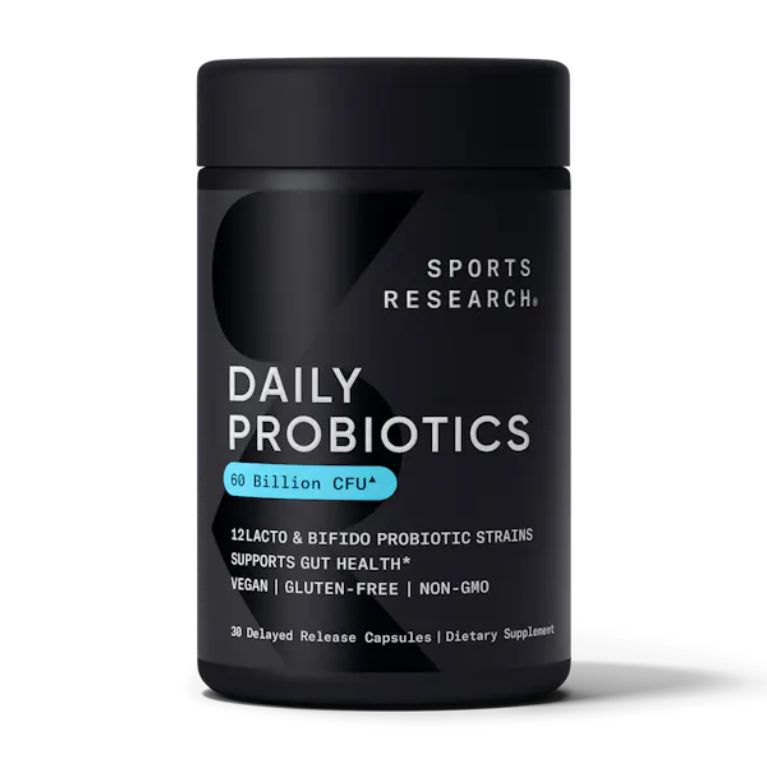
|
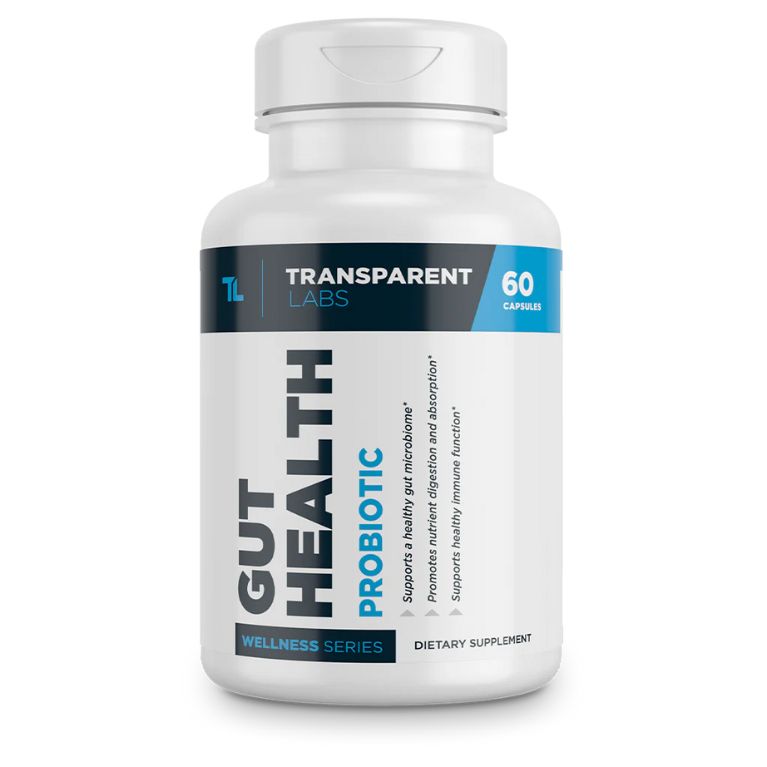
|
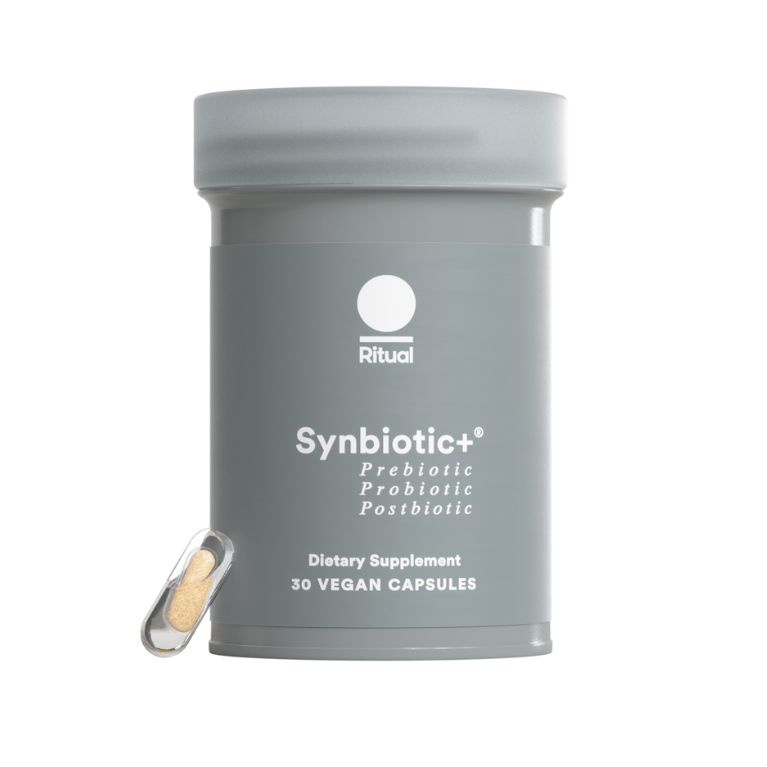
|
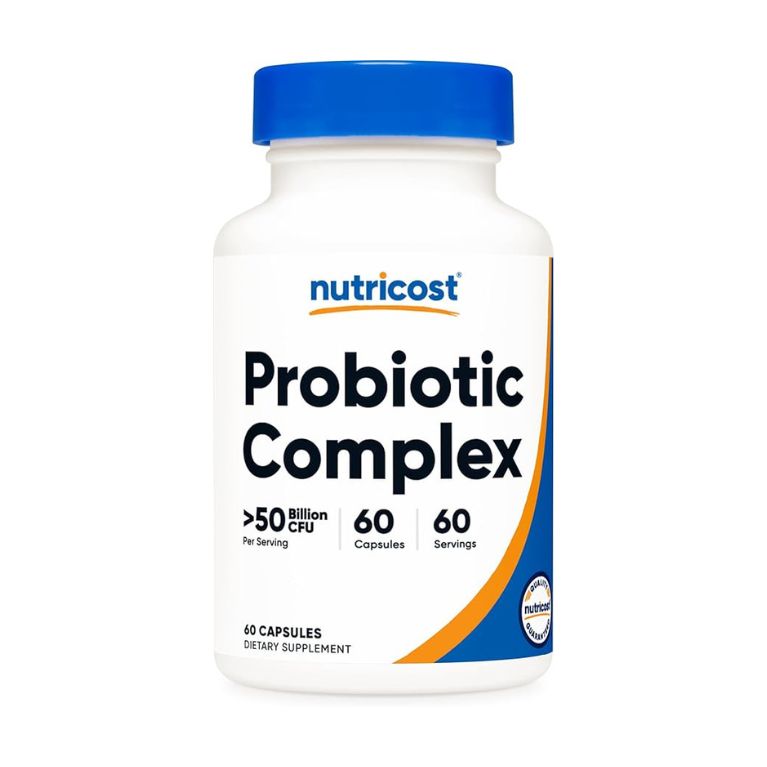
|
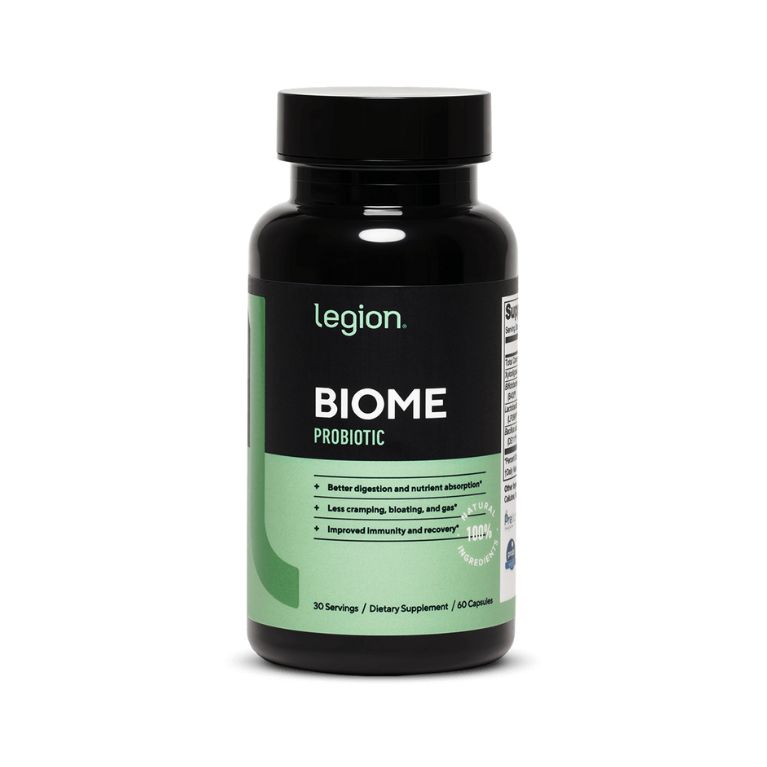
|
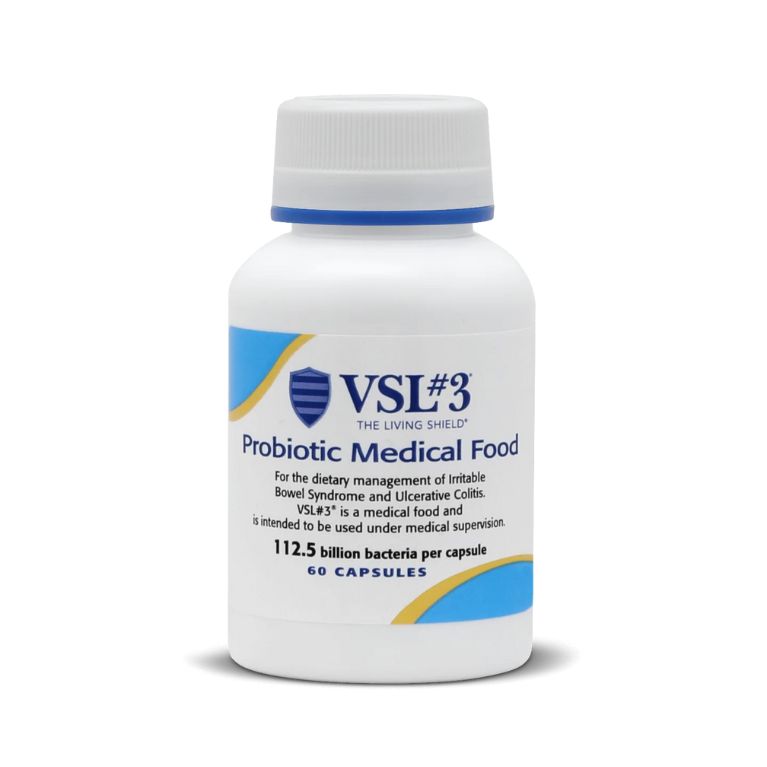
|
|
| Unbloat Capsules | Sports Research Daily Probiotics | Transparent Labs Gut Health | Ritual Synbiotic+ | Nutricost Probiotic Complex | Legion Athletics Biome | VSL#3 Capsules | |
| Rating | |||||||
| Cost per serving | $2.20 | $0.83 | $1.53 | $1.80 | $0.33 | $1.67 | $2.20 |
| Daily dose | 2 capsules | 1 capsule | 2 capsules | 1 capsule | 1 capsule | 2 capsules | 2 capsules |
| CFUs | 25 billion | 60 billion | 100 billion | 11 billion | 10 billion | 25 billion | 112.5 billion |
| Key ingredients | Folate, magnesium, Probiotic blend of 7 strains, prebiotic fiber, 21 digestive enzymes, fennel seed, ginger root, turmeric root, milk thistle, spirulina algae, peppermint leaf | Probiotic blend of 12 strains, fiber inulin blend | Probiotic blend of 10 strains | Probiotic blend of 2 strains, PreforPro, tributyrin | Probiotic blend of 10 strains | Probiotic blend of 3 strains, xylooligosaccharides | Probiotic blend of 8 strains |
How we test probiotic supplements
The methods we use to score probiotics extend from our nutrition product and supplement methodology. For each category we test, a score from 0 to 5 is assigned before they’re weighted by importance and averaged for our final score for each product. A 5 is a probiotic that receives top scores in every category, while a lower score may mean that it fell short in any one or more categories.
You can read our full probiotics testing methodology here.
Testing criteria
Cultures contained–25%
Not all probiotic strains are created equal, so paying attention to the type and amount of probiotics is crucial for analyzing potential benefits. Some strains support digestive health, while others may be more aligned with inflammation, immune function, or a specific issue like diarrhea or IBS. The key probiotic strains that have been extensively studied in clinical trials include:
Lactobacillus:
- rhamnosus
- acidophilus
- plantarum
- paracasei
- casei
- salivarius
- Fermentum
Bacillus:
- subtilis
- coagulans
Bifidobacterium:
- lactis
- bifidum
- breve
- animalis
- longum
Saccharomyces:
- boulardii
Streptococcus:
- thermophilus
Probiotics that include any of these strains get more points because of their heavily researched benefits.
Proprietary culture blend–25%
Proprietary blends may tell you the type or family of probiotic used but do not disclose the potency of each individual strain or may not even provide the specific strains included. This lack of transparency is meant to keep the formula from being replicated by competitors, but it makes it difficult for consumers to make an informed decision. Without knowing the specific strains or the concentrations, it’s impossible to evaluate the actual effectiveness of a probiotic product.
Encapsulated with food source–20%
Encapsulating probiotics with a food source like inulin can help protect the beneficial bacteria from harsh stomach acids and bile. (21) This increases the chance that the microbes will survive as they make their way through the digestive system to the large intestine, where they call home.
Live and active bacterial cultures–15%
You’ll get the biggest benefit from probiotics when they’re alive and active and delivered in an amount large enough to populate your digestive tract. (22) We check to see if the product has a statement confirming that live microorganisms are present.
Colony-forming units (CFUs) at the end of shelf life date–10%
In probiotics, the CFUs indicate the number of live microorganisms present in the product at the end of its shelf life. While more isn’t always better, having a large number of a variety of strains can help populate your microbiome, which contains an average of 38 trillion microbes. Having at least 20 billion or more CFUs is generally recommended. (22)
- Under 1 Billion
- 1 Billion – 4.9 Billion
- 5 Billion – 9.9 Billion
- 10 Billion – 19.9 Billion
- 20 Billion+
Type–5%
Which form you choose often depends on personal preference, needs, and lifestyle considerations.
- Capsule
- Tablet
- Powder
- Enteric-coated
- Gummy or chewable
Certifications
Third-party certifications show evidence that a supplement contains what it says and is free from what it claims to be free from. They can also assure advertised potency.
Here are the certifications that stand out:
- Third-party testing
- NSF
- U.S. Pharmacopeia (USP)
- Labdoor
- Informed-Sport
- Informed Choice (ICFS)
- Informed Ingredient
Bonus points
To recognize innovation and encourage healthy competition, we incorporate bonus credits into our scores. Bonus points provide a small boost to the product’s overall score and are equally weighted.
Sustainable packaging
Given our commitment to sustainability, brands offering sustainable packaging receive bonus credits. For example, having the option to purchase containers with more servings helps reduce the number of bottles that end up in landfills.
FAQs
How long does Unbloat take to work?
What are the benefits of Unbloat?
Unbloat may support digestion of the food you eat by improving the health of your gut microbiome with prebiotics and probiotics and helping your body better break down and assimilate the nutrients. This could potentially help reduce bloating, gas, and other digestive concerns.
Does Unbloat need to be refrigerated?
Unbloat is shelf-stable and does not require refrigeration. Per the company’s website, the cultures are guaranteed stable for up to 18 months when kept at room temperature.
These statements have not been evaluated by the Food and Drug Administration. These products are not intended to diagnose, treat, cure, or prevent any diseases.
Our experts
Victoria Burgess, Ph.D., CSCS, CISSN
Victoria Burgess earned her Ph.D. in Health and Human Performance from Concordia University Chicago and holds her NSCA CSCS and Certified Sports Nutritionist (CISSN). She is an adjunct professor in the Human Performance and Nutrition department at Concordia University Chicago & Parker University, where she teaches undergraduate, graduate, and doctoral-level courses.
Joana Neziri, M.S., NASM CPT
Joana is a writer, editor, and content strategist focusing on nutrition, fitness, and all things health. After earning a master’s degree in business from the University of North Florida, she began a career in research and digital marketing.
Jessica Coulon
Jessica is a contributing editor and writer who specializes in fitness, health, nutrition, and science content. Previously, she was an editor for Popular Mechanics and Bicycling, where she covered pro cycling news, wrote how-to guides, and tested all the latest and greatest bike gear. She was also a regular shoe tester and contributor for Runner’s World. You can often find her skiing or riding her mountain bike, and racing with the F1RE female enduro team.
Kelly Uhler
Kelly has a multifaceted background in elder care, health care, and copywriting. She has worked for organizations such as A Place For Mom and Homecare.com, which gave her the opportunity to work closely with families, providing reliable information to help them make informed decisions about their loved one’s health, safety, and quality of life.

Kelsey Kunik
Media Dietician
About Author
Kelsey Kunik is a registered dietitian with 5+ years of experience writing SEO nutrition and wellness content. She writes editorial and commerce content for several national online publications, such as Eat This!, Healthline, Livestrong.com, and Clean Plates, and have been featured as a nutrition expert in hundreds of published articles in top-tier outlets.
References
- Ballou S, Singh P, Nee J, et al. Prevalence and Associated Factors of Bloating: Results From the Rome Foundation Global Epidemiology Study. Gastroenterology. 2023;165(3):647-655.e4. doi:10.1053/j.gastro.2023.05.049 https://pubmed.ncbi.nlm.nih.gov/37315866/
- Rau S, Gregg A, Yaceczko S, Limketkai B. Prebiotics and probiotics for gastrointestinal disorders. Nutrients. 2024;16(6):778. doi:10.3390/nu16060778 https://www.mdpi.com/2072-6643/16/6/778
- Office of Dietary Supplements – Probiotics. https://ods.od.nih.gov/factsheets/Probiotics-HealthProfessional/
- Zheng X, Xia C, Liu M, et al. Role of folic acid in regulating gut microbiota and short-chain fatty acids based on an in vitro fermentation model. Applied Microbiology and Biotechnology. 2024;108(1). doi:10.1007/s00253-023-12825-5 https://link.springer.com/article/10.1007/s00253-023-12825-5
- Markowiak-Kopeć P, Śliżewska K. The Effect of Probiotics on the Production of Short-Chain Fatty Acids by Human Intestinal Microbiome. Nutrients. 2020;12(4):1107. Published 2020 Apr 16. doi:10.3390/nu12041107 https://pmc.ncbi.nlm.nih.gov/articles/PMC7230973/
- Magnesium citrate: MedlinePlus drug information. https://medlineplus.gov/druginfo/meds/a619019.html
- Mathipa-Mdakane MG, Thantsha MS. Lacticaseibacillus rhamnosus: A Suitable Candidate for the Construction of Novel Bioengineered Probiotic Strains for Targeted Pathogen Control. Foods. 2022;11(6):785. Published 2022 Mar 8. doi:10.3390/foods11060785 https://pmc.ncbi.nlm.nih.gov/articles/PMC8947445/
- Horvath A, Dziechciarz P, Szajewska H. Meta-analysis: Lactobacillus rhamnosus GG for abdominal pain-related functional gastrointestinal disorders in childhood. Aliment Pharmacol Ther. 2011;33(12):1302-1310. doi:10.1111/j.1365-2036.2011.04665.x https://pubmed.ncbi.nlm.nih.gov/21507030/
- Chen J, Chen X, Ho CL. Recent Development of Probiotic Bifidobacteria for Treating Human Diseases. Front Bioeng Biotechnol. 2021;9:770248. Published 2021 Dec 22. doi:10.3389/fbioe.2021.770248 https://pmc.ncbi.nlm.nih.gov/articles/PMC8727868/
- Edelman M, Wang Q, Ahnen R, Slavin J. The dose response effects of partially hydrolyzed guar gum on gut microbiome of healthy adults. Applied Microbiology. 2024;4(2):720-730. doi:10.3390/applmicrobiol4020049 https://www.mdpi.com/2673-8007/4/2/49
- Di Stefano M, Miceli E, Gotti S, Missanelli A, Mazzocchi S, Corazza GR. The effect of oral Α-Galactosidase on intestinal gas production and Gas-Related Symptoms. Digestive Diseases and Sciences. 2006;52(1):78-83. doi:10.1007/s10620-006-9296-9 https://link.springer.com/article/10.1007/s10620-006-9296-9
- Zhang Z, Wang X, Li F. An exploration of alginate oligosaccharides modulating intestinal inflammatory networks via gut microbiota. Frontiers in Microbiology. 2023;14. doi:10.3389/fmicb.2023.1072151 https://www.frontiersin.org/journals/microbiology/articles/10.3389/fmicb.2023.1072151/full
- Mizuno H, Bamba S, Abe N, Sasaki M. Effects of an alginate-containing variable-viscosity enteral nutrition formula on defecation, intestinal microbiota, and short-chain fatty acid production. Journal of Functional Foods. 2020;67:103852. doi:10.1016/j.jff.2020.103852 https://www.sciencedirect.com/science/article/pii/S1756464620300761
- Sui Z, Wang N, Zhang X, et al. Comprehensive study on the effect of dietary leucine supplementation on intestinal physiology, TOR signaling and microbiota in juvenile turbot (Scophthalmus maximus L.). Fish & Shellfish Immunology. 2023;141:109060. doi:10.1016/j.fsi.2023.109060 https://www.sciencedirect.com/science/article/abs/pii/S1050464823005466
- Das B, Rabalais J, Kozan P, et al. The effect of a fennel seed extract on the STAT signaling and intestinal barrier function. PLoS One. 2022;17(7):e0271045. Published 2022 Jul 8. doi:10.1371/journal.pone.0271045 https://pmc.ncbi.nlm.nih.gov/articles/PMC9269469/
- Scazzocchio B, Minghetti L, D’Archivio M. Interaction between Gut Microbiota and Curcumin: A New Key of Understanding for the Health Effects of Curcumin. Nutrients. 2020;12(9):2499. Published 2020 Aug 19. doi:10.3390/nu12092499 https://pmc.ncbi.nlm.nih.gov/articles/PMC7551052/
- Cash BD, Epstein MS, Shah SM. A Novel Delivery System of Peppermint Oil Is an Effective Therapy for Irritable Bowel Syndrome Symptoms. Dig Dis Sci. 2016;61(2):560-571. doi:10.1007/s10620-015-3858-7 https://pmc.ncbi.nlm.nih.gov/articles/PMC4729798/
- Foshati S, Poursadeghfard M, Heidari Z, Amani R. The effects of ginger supplementation on common gastrointestinal symptoms in patients with relapsing-remitting multiple sclerosis: a double-blind randomized placebo-controlled trial. BMC Complementary Medicine and Therapies. 2023;23(1). doi:10.1186/s12906-023-04227-x https://bmccomplementmedtherapies.biomedcentral.com/articles/10.1186/s12906-023-04227-x
- David D, Heggar VS, Justin T V, Prasad KS. AsdamarinTM relieves functional dyspepsia in healthy adults in only 7 days: A randomized, double-blind, placebo-controlled pilot study. Annals of Clinical Gastroenterology and Hepatology. 2021;5(1):018-024. doi:10.29328/journal.acgh.1001028 https://www.gastrohepatoljournal.com/articles/acgh-aid1028.php
- Achufusi TGO, Pellegrini MV, Patel RK. Milk Thistle. StatPearls – NCBI Bookshelf. Published February 28, 2024. https://www.ncbi.nlm.nih.gov/books/NBK541075/
- Singh S, Gupta R, Chawla S, et al. Natural sources and encapsulating materials for probiotics delivery systems: Recent applications and challenges in functional food development. Front Nutr. 2022;9:971784. Published 2022 Sep 21. doi:10.3389/fnut.2022.971784 https://pmc.ncbi.nlm.nih.gov/articles/PMC9534265/
- Hill C, Guarner F, Reid G, et al. The International Scientific Association for Probiotics and Prebiotics consensus statement on the scope and appropriate use of the term probiotic. Nature Reviews Gastroenterology & Hepatology. 2014;11(8):506-514. doi:10.1038/nrgastro.2014.66 https://www.nature.com/articles/nrgastro.2014.66
- Danielle. Probiotics – International Scientific Association for Probiotics and Prebiotics (ISAPP). Published August 9, 2024. https://isappscience.org/for-consumers/learn/probiotics/
